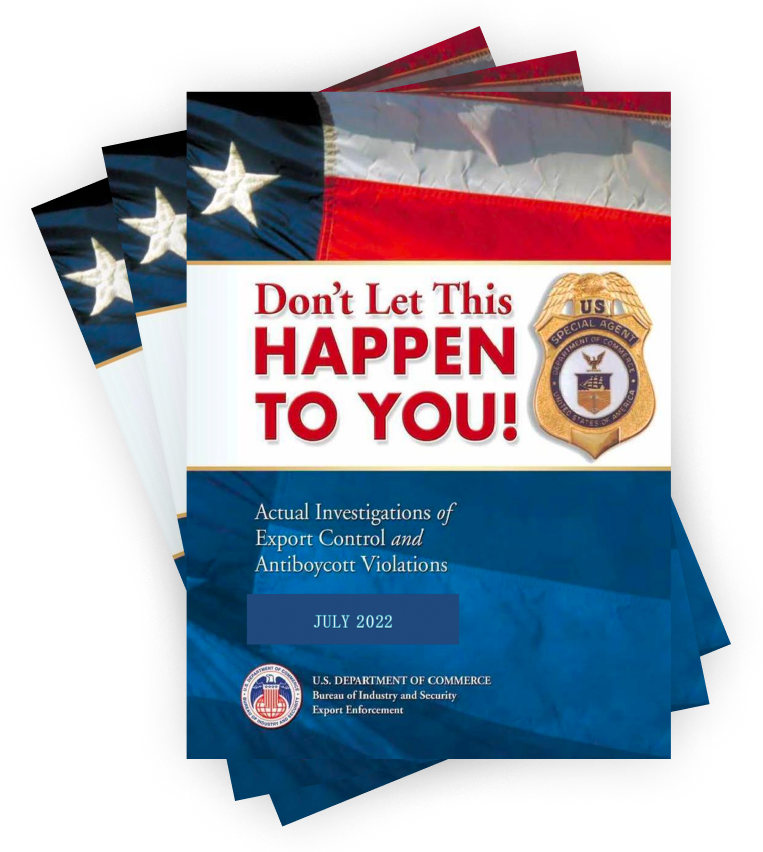The International Trade Blog Export Compliance
Export Compliance: The Importance of Knowing End Use and End Users
On: December 9, 2019 | By:  Arnesh Roy |
3 min. read
Arnesh Roy |
3 min. read
 You’ve just found a buyer in a foreign country and you’re preparing to close the sale—great! But there’s one thing you should keep in mind that is easy to overlook: the end use and end users.
You’ve just found a buyer in a foreign country and you’re preparing to close the sale—great! But there’s one thing you should keep in mind that is easy to overlook: the end use and end users.
You will need to determine the end-use (how will the product ultimately be used) and the end-user (who will ultimately use the product). To ensure that you are compliant with the Export Administration Regulations (EAR) and the International Traffic in Arms Regulations (ITAR) of the United States, you must be sure that you are not shipping goods to a prohibited end-user or for a prohibited end-use.
Examples of prohibited end-use include restrictions on certain nuclear end-uses, use of products in weapons of mass destruction, and use of microprocessors for military end-use.
For a full list of end-use and end-user prohibitions under the EAR, see 15 Code of Federal Regulations (CFR) Part 744.
Supplement No. 3 to Part 732 includes a list of "red flags" that may indicate that you are shipping to a prohibited end-user or for a prohibited end-use. You should review this list of red flags to determine if any apply to your international shipment. As an exporter, the burden is on you to ensure your exports will not be used by a prohibited end-user or for a prohibited end-use.
To keep track of restricted end-users, U.S. government agencies such as the Department of Commerce and Department of State produce restricted or denied party lists. These are lists of individuals or organizations that have been identified as needing an export license to ship to.
There are a variety of reasons someone might be on a restricted party list. For example, they may have a history of sponsoring terrorism or a history of corrupt business practices. If the federal government identifies the individual or organization as in any way posing a threat to the national security of the United States, they will likely be on a denied parties list.
The Shipping Solutions Restricted Party Screening Wizard will screen against more than 100 lists, including all the U.S. government lists, to determine if your customer is a restricted end-user. This prevents exporters from having to manually search for matches on each list, which can save a lot of time.
The Restricted Party Screening Wizard is also included with the Shipping Solutions Professional export documentation software. The software’s Export Compliance Module also includes an Export License Determination Wizard and a Document Determination Wizard.
Related Reading
Whitepaper: What You Need to Know About Export Compliance
Whitepaper: How to Determine if You Need an Export License
This article was first published in December 2016 and has been updated to include current information, links and formatting.

About the Author: Arnesh Roy
Arnesh Roy was a Senior Inside Sales Representative at Shipping Solutions.


